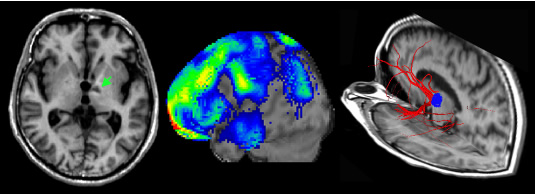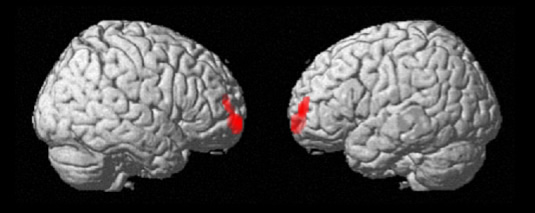Members
Etsuro Mori (Behavioral Neurology/Cognitive Neuroscience)

Dr. Mori received his M.D. and Ph.D. from Kobe University School of Medicine and has been a professor of Tohoku University Graduate School of Medicine since 2003. He completed an internship, residency, and fellowship in neurology at Kobe University Hospital and Hyogo Brain and Heart Center at Himeji. He has done research on stroke at the Department of Molecular and Experimental Medicine at Scripps Clinic and Research Foundation (La Jolla, CA, USA), and on dementia at Hyogo Institute for Aging Brain and Cognitive Disorders. He has broad interests in stroke, dementing disorders, behavioral neurology, and the interface of neuroscience and society, and has written 450 articles, and chapters on stroke, dementia or behavioral neurology. He serves on the Executive Committees of the Japan Stroke Society, Japan Neuropsychological Association, Japan Society for Higher Brain Dysfunction, and the Japan Neuropsychyatric Association. He has participated in numerous clinical trials in acute ischemic stroke. He was a co-principal investigator or a member of the Executive/Steering Committee for JET, MELT, J-ACT, J-ACT II, SINPHONI, and J-COSMIC. In addition, he is on the editorial board of various prominent journals, including Cerebrovascular Disorders and Journal of Neuroimaging.
- Introduction of Research
-
Department of Behavioral Neurology and Congnitive Neuroscience was founded in 1994 as a part of Division of Disability Science, Tohoku University Graduate School of Medicine. We also have a responsibility for the clinic of the Tohoku University Hospital. Our section have graduate programs for medical students and postgraduate programs for graduate students from various areas including neuroscience, psychology, rehabilitation sciences, and education, and provides unique opportunities to study and research functions of the brain and mind and its relation.
- 1. Clinical neuropsychology
- Our clinical studies covers wide range of neuropsychological and behavioral neurological themes including emotion, attention, memory, language, praxis, visuospatial function, frontal lobe functions, and dementia. Aims of our clinical studies are; to clarify the level of dysfunction that each patient shows using detailed neurological and neuropsychological examinations tailored for the individual, to examine localization and severity of brain damage by neuroimaging techniques such as MRI, PET and SPECT, and to understand neuronal mechanisms underlying each higher cerebral function. Furthermore we devise methods for treatment for each patient using those findings.。。We have published important findings concerning brain-mind relation and its disorder in leading journals.
- 2. Neuroimaging studies
- In addition to clinical studies mentioned above, functional neuroimagings such as functional magnetic resonance imaging (fMRI) and positron emission tomography (PET) enable us to measure brain activity associated with various cognitive functions in humans. The joint complementary use of neuroimaging and neuropsychology offers a fundamental advantage over either technique in isolation. Research interests were focused so far on memory processes and executive functions, but are now expanding into other basic cognitive domains, activation study in brain damaged, and pharmacological fMRI.
- 3. Research on neurobehavioral aspects of neurological diseases
- Studies focusing on cognitive and behavioral problems in patients with various neurological diseases and brain injury elucidated neuronal basis and solutions of the problems. Structural and functional brain imagings figured out the neural basis of the deficits of memory, language, and executive functions and behavioral symptoms in dementing illnesses (e.g., Alzheimer's disease, frontotemporal lober degeneration, idiopathic normal pressure hydrocephalus), neurological diseases (e.g., Parkinson's disease), and neurodevelopmental disorders (e.g., Prader-Willi syndrome).
- 4. Neuro-nosometrics and clinical trial for neurological and cognitive disorders
- It is increasingly important to measure cognitive and behavioral dysfunctions after emerging the concepts of evidence-based medicine and translational research. Study on measures of cognitive and behavioral dysfunctions as well as sensori-motor deficits caused by brain damage (neuro-nosometrics) is an important research field, which we are centrally involved in. Neuro-nosometrics covers not only evaluation of neuronal dysfunctions but also detection of possible effects of an intervention. We are now engaged in several nation-wide cooperative clinical trials for stroke and Alzheimer's disease as core investigators for study design and analysis of clinical outcome. Furthermore, we are organizing a new physician-leading clinical trial of a compound for patients with aphasia.

1. Lesion-circuit disruption-cortical hypoperfusion-dysfunction relationship.
A clinico-anatomical study was carried out in a patient with an infarct in the genu of the internal capsule (causing semantic memory deficits and behavioral derangement. A SPECT revealed decreased cerebral blood flow in the frontal and anterior lobes, a stereotaxic MRI tractgraph demonstrated the anterior and inferior thalamic peduncles from the capsular genu to the frontal and anterior temporal cortices.
2. Patients with Parkinson。ヌs disease have difficulty telling lies due to dysfunction of the prefrontal cortices.
It has been believed that patients with Parkinson。ヌs disease have characteristic personal traits including seriousness and honesty. Patients with Parkinson。ヌ disease have difficulty making deceptive responses on an experimental deception task compared with healthy people. The patients。ヌ task performance was correlated with the glucose hypometbolism in the prefrontal cortices measured by 18F-fluorodeoxyglucose PET. - Articles
-
- Ogawa A, Mori E, Minematsu K, Taki W, Takahashi A, Nemoto S, Miyamoto S, Sasaki M, Inoue T; The MELT Japan Study Group. Randomized Trial of Intraarterial Infusion of Urokinase Within 6 Hours of Middle Cerebral Artery Stroke. The Middle Cerebral Artery Embolism Local Fibrinolytic Intervention Trial (MELT) Japan. Stroke. 2007 Aug 16; [Epub ahead of print]
- Abe N, Suzuki M, Mori E, Itoh M, Fujii T. Deceiving others: distinct neural responses of the prefrontal cortex and amygdala in simple fabrication and deception with social interactions. J Cogn Neurosci. 2007 Feb;19(2):287-95.
- Nishio Y, Kazui H, Hashimoto M, Shimizu K, Onouchi K, Mochio S, Suzuki K, Mori E. Actions anchored by concepts: defective action comprehension in semantic dementia. J Neurol Neurosurg Psychiatry. 2006 Dec;77(12):1313-7.
- Abe N, Suzuki M, Tsukiura T, Mori E, Yamaguchi K, Itoh M, Fujii T. Dissociable roles of prefrontal and anterior cingulate cortices in deception. Cereb Cortex. 2006 Feb;16(2):192-9.
- Hashimoto M, Kazui H, Matsumoto K, Nakano Y, Yasuda M, Mori E. Does donepezil treatment slow the progression of hippocampal atrophy in patients with Alzheimer's disease? Am J Psychiatry. 2005 Apr;162(4):676-82.